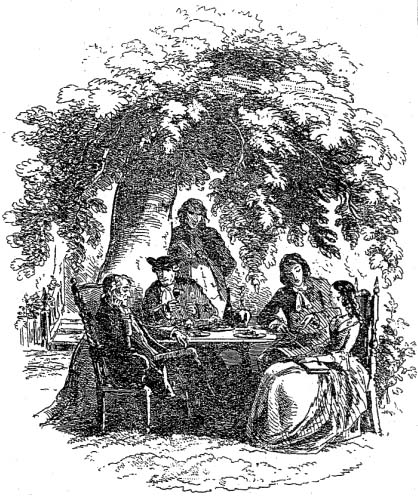
British and American English Historical influences Mr. S' Swiss Bank Account
Interesting Vocabulary from Dickens' A Tale of Two Cities
Book One
Mire: p. 15 "He walked uphill in the mire by the side of the mail..." is derived from, "Old Norse myr 'mire'" mire (mr) noun. 1. An area of wet, soggy, muddy ground; a bog. 2. Deep slimy soil or mud. 3. A disadvantageous or difficult condition or situation: the mire of poverty. (Sarah)
Opiate p. 23. Definition: Something that may dull the senses, or create a state of total relaxation. Orgin: Medieval Latin, Opium. (Alex: we need part of speech and more about the origin.) (Thank Liz P. and Sari)
Evanescence (Adjective) p. 26:: Tending to Vanish like vapor. Origin: "E": to go out; Essence = being. (Liz P.)
Claret: (noun) p. 28. Etymology: Middle English, from Middle French (vin) claret clear wine, from claret clear, from cler clear. Date: 1594. 1 : a red Bordeaux wine; also : a similar wine produced elsewhere. 2 : a dark purplish red- claret adjective (Ashley).
Flaxen (adj.) p. 30. Date: 15th century. 1 : made of flax(see below). 2 : resembling flax especially in pale soft strawy color <flaxen hair> flax: noun. Etymology: Middle English, from Old English fleax; akin to Old High German flahs flax, Latin plectere to braid -- more at PLY. Date: before 12th century. 1 : any of a genus (Linum of the family Linaceae, the flax family) of herbs; especially : a slender erect annual (L. usitatissimum) with blue flowers commonly cultivated for its bast fiber and seed. (Billy)
Besmirched: (verb) p. 37. 1. To stain; sully: a reputation that was besmirched by slander. 2. To make dirty; soil. (Kristen)
Squalid: (adj.). p. 37. 1. Dirty and wretched, as from poverty or lack of care. 2. Morally repulsive; sordid: "the squalid atmosphere of intrigue, betrayal, and counterbetrayal" (W. Bruce Lincoln). (Kristen).
Modicum: p. 38 "Hunger was repeated in every fragment of the small modicum of firewood that the man sawed off;" Definition: mod·i·cum (md-km). A small, moderate, or token amount: [Middle English, from Latin, from neuter of modicus, moderate, from modus, measure.] (Sara)
Offal: p. 38 "Hunger stared down from the smokeless chimneys and started up from the filthy street that had no offal, among its refuse, or nothing to eat." Definition: of·fal (ôfl, fl) noun. Waste parts, especially of a butchered animal. Refuse; rubbish. [Middle English : of-, off (from Old English, from of. See apo- in Indo-European Roots) + fal, fall.] (Sara).
Admonitory (adjective) p. 45. Conveying an admonition or a warning: a monitory glance. Middle English monitorie, from Medieval Latin monitria from feminine of Latin monitrius from monitor, monitor. (Sari).
Gaoler: p. 51 "You are not the gaoler's daughter?" I think this word is derived from "jailer" gaoler \Gaol"er\, n. The keeper of a jail. (Sarah).
Provender (noun) p.55 1 : dry food for domestic animals : FEED. 2 : FOOD, VICTUALS.
Etymology: Middle English, from Middle French provende, provendre, from Medieval Latin provenda, alteration of praebenda prebend (14th century) (Billy)
Sagacity p. 55. Definition: keen in ones sense perception; sharp. Orgin: Latin: sagac-, sagax, from sagire to perceive keenly; akin to Latin sagus prophetic. (Alex and Ashley)
Extemporized p. 62 English definition: (v) perform without preparation. Latin derivative of tempus, temporis (N.) - time, period and the prefix ex- which means "out of" so the word literally means "out of time" (Liz M.)
Insensate p. 62 (adj.) English definition: 1. a.Lacking sensation or awareness; inanimate. b. Unconscious. 2. Lacking sensibility; unfeeling: "a predatory, insensate society in which innocence and decency can prove fatal" (Peter S. Prescott). 3. a. Lacking sense or the power to reason. b. Foolish; witless. (dictionary.com). Latin derivative of sentio. -ire. sensi, sensum - perceive, see, hear, feel; observe, notice, understand, know and of the prefix in- with means "without" (Liz M.)
Do you recognize this scene in Book II?